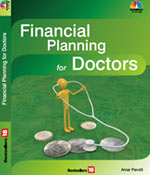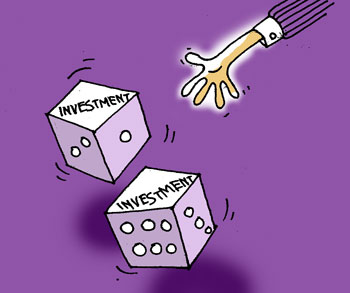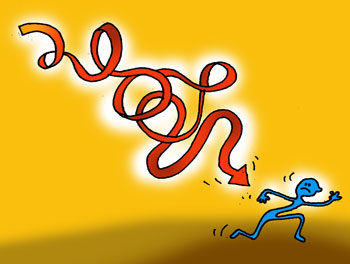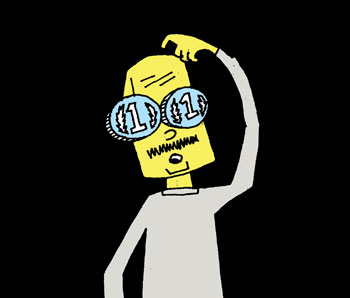
Financial advisor Amar Pandit in his book Financial Planning for Doctors lists seven most common money mistakes that doctors make. On second thoughts these seven mistakes could apply to any one of us.
Presented here is an excerpt from 7 common money mistakes doctors make.
Indian doctors are among the best in the world and are highly respected in the global community. This is one of the reasons for the surge in medical tourism, as besides lower costs, proper diagnosis and treatment methods are superior or at par with medical facilities available in developed countries.
However, when it comes to money management, most doctors are guilty of several mistakes. We list 7 major, common money mistakes that most smart, intelligent doctors commit.
1. Too many loans
Although most doctors have a high and stable income, their expenses are equally high. One of the key reasons is that they have too many loans. Most doctors often have a home loan, practice property loan, car loan, equipment loan and loan against property. They end up paying a substantial amount of their income towards EMIs.
Besides EMIs, practice expenses, insurance premiums and personal expenses eat into earnings quite quickly. There is often a whole lot of spending on interiors, and acquisition of real estate (instead of just renting it out). Since these are big-ticket items, servicing debt and maintaining other expenses result in a liquidity crunch even for mature practices.

Some doctors also take on loans because their accountants advise them to do so from a tax planning perspective. This is primarily to harness the advantages of depreciation and interest deduction.
However, such ad-hoc decisions are considered without taking a holistic view of the doctor's liquidity and personal needs, which often put doctors in severe cash flow problems.
Excerpted from Financial Planning for Doctors (Rs 499) by Amar Pandit, with the permission of the author and publisher CNBC-TV18.
Click here to buy Financial Planning for Doctors from rediff Books!

Although it sounds stereotypical, most doctors hoard real estate like there is no tomorrow. One of the biggest reasons is that they have a lot of income in the form of cash that can be comfortably cushioned in real estate investments.
Additionally, they believe that not only is real estate insulated from market vagaries, but it also gives stellar returns along with tax benefits. As a result, they borrow to invest in real estate and are leveraged (which means they take on debt).
Like most Indians, doctors too have completely forgotten the Indian real estate crash of 1995 and the subsequent lull for several years until 2003.
This is a very dangerous strategy to adopt as this can prove to be lethal during real estate crashes, especially since real estate is an illiquid investment.

Most doctors buy life insurance as an investment and pump in a lot of money into life insurance policies. Given a doctor's busy schedule, these investments are often done in a rudimentary manner as and when patients or life insurance agents make pitches. Since doctors earn very high incomes, they often pay sizeable premiums and get a low cover.
Despite paying high premiums, most doctors are under-insured when it comes to life insurance in a big way. There is no assessment of the actual financial risk their family will face, in case of their premature death, and most liabilities are not covered.
At the same time, they have negligible or no professional liability cover, negligible disability cover, no income protection and no social or employer benefits.
This area must be adequately addressed to ensure lifestyle maintenance, wealth creation and wealth protection.

The portfolio of most doctors would probably look like this: more than 60 per cent in real estate investments, 10-20 per cent in debt (PPF, insurance policies, bonds and post office), 15-20 per cent in cash (savings account, fixed deposits and cash), and negligible gold and equity.
Many doctors have just these investments: real estate, PPF and insurance policies.
Considering that doctors are a busy lot and do not even have time for their families, they end up making decisions based on the advice of their chartered accountant, colleagues, banks , real estate agent, family members, insurance agents and patients.
As is evident in the sample demonstrated earlier, the portfolio is not sophisticated or balanced. You can clearly see that it is a haphazard hodgepodge of investments built over time.

Doctors usually spend a lot of money in doing up the interiors of their practice or sometimes in cosmetic fittings.
However, when it comes to building a business by investing in people or undertaking marketing initiatives such as doing a workshop at a cost, very few have the inclination or aptitude to do it.
Investing in essential equipment is great, but it is better to defer expenditures that will not generate revenue or improve client experience.
Doctors normally spend on upgrading their skill sets or in attending conferences; surprisingly, they mete out step-motherly treatment on spending on brand building and marketing initiatives.

Most doctors do not understand the concepts of financial goal setting, cash flow and debt management, insurance planning, asset allocation, maximisation of post-tax income, retirement and estate planning (wills, power of attorney and trusts), for the simple reason that there is no formal education in personal finance or financial planning.
It is because of this limited knowledge that they end up making costly mistakes.
Their realisation of the importance of a financial plan is reactive rather than proactive, in that it is only when an event happens that they realize the need for a financial plan or the need to take a holistic view of their financial situation.

Some doctors generally believe that the objective of tax planning is to minimise taxes and often end doing things that are not in their best interest.
They take several loans, buy real estate and life insurance in an unplanned fashion, and indulge in tricks to fool the taxmen such as showing limited income or a weak balance sheet with the only objective of not paying tax.